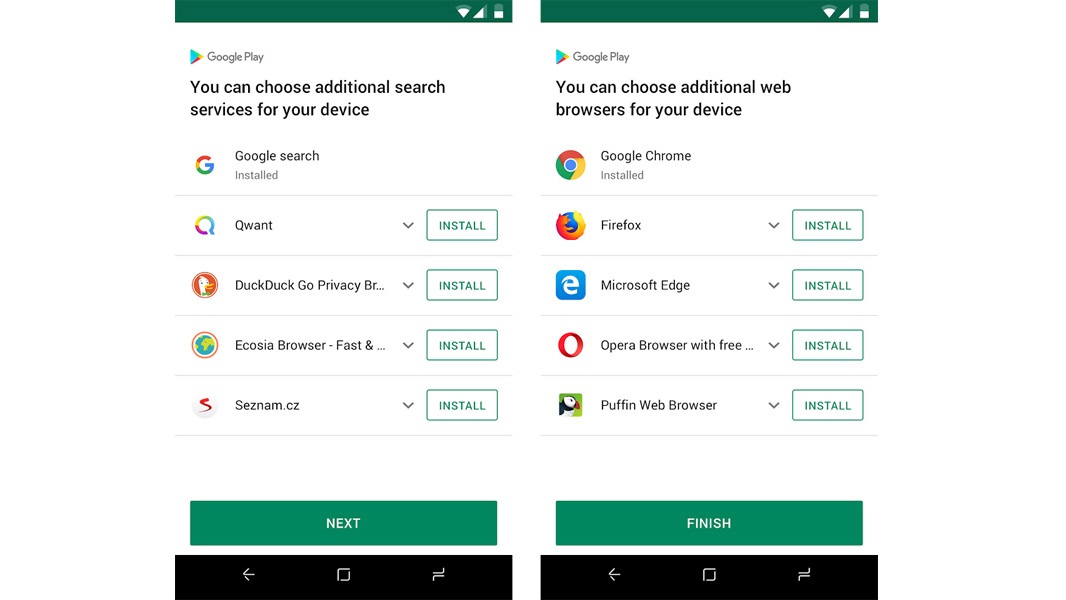Google to Fight 2018 EU Antitrust Finding
- Paul Thurrott
- Jul 12, 2021
-
4

A Reuters report says that Google will try to overturn a 2018 EU antitrust ruling against Android this September. That ruling included a $5.15 billion fine.
In 2018, the European Commission (EC) found Google guilty of abusing its monopoly powers and forced it to implement Search and Browser choice screens when EU-based customers first sign-in to Android. These screens allow customers to choose non-Google options for both functions, and Google basically gamed the system and created a lottery system by which third parties would need to pay them to appear on the lists. It also raised the price of Android licenses in the EU.
Windows Intelligence In Your Inbox
Sign up for our new free newsletter to get three time-saving tips each Friday — and get free copies of Paul Thurrott's Windows 11 and Windows 10 Field Guides (normally $9.99) as a special welcome gift!
"*" indicates required fields
According to Reuters, Google now intends to overturn the EC ruling and the resulting fine during a five-day hearing in September at the General Court in Luxembourg. It claims, too, that the search giant has the backing of various industry lobbies as well as device makers like Finland-based HMD, which sells Nokia-branded handsets, and software makers like Opera, which is based in Norway.